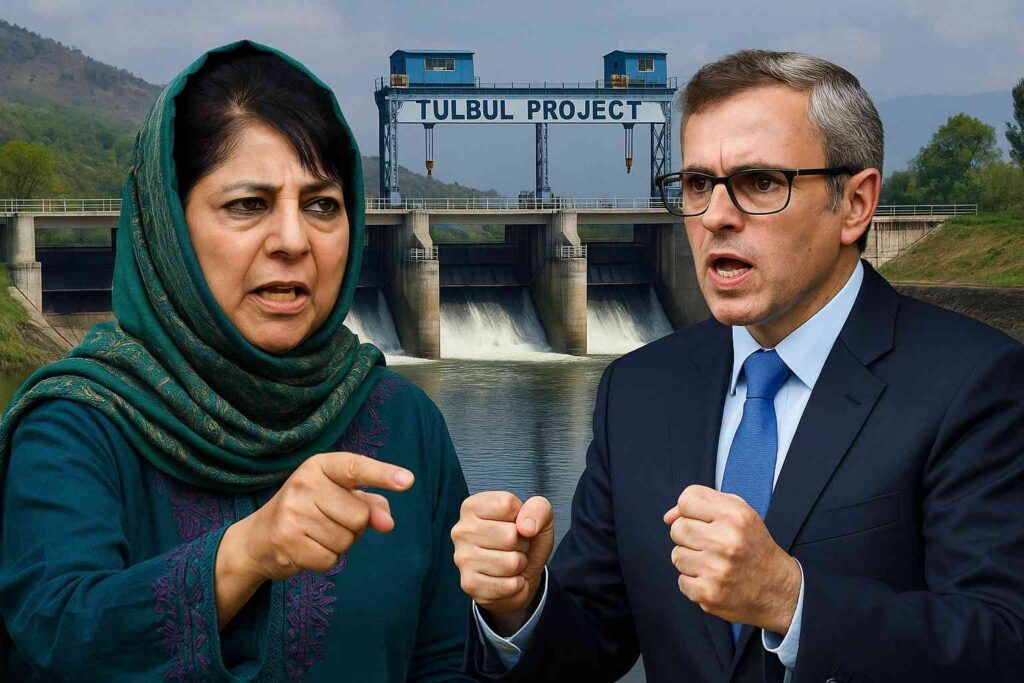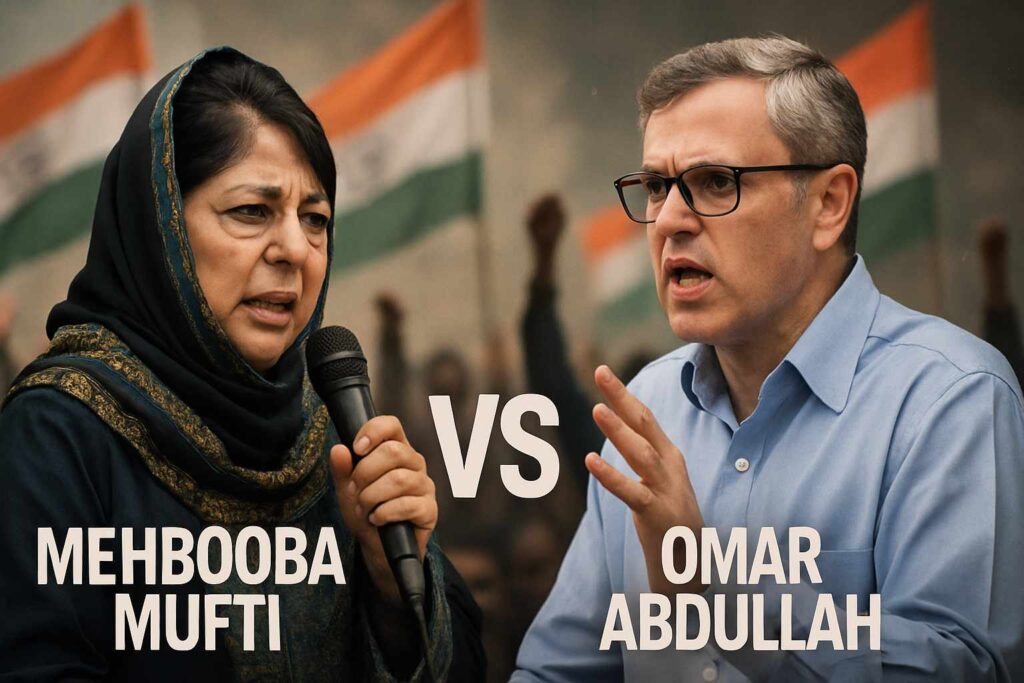Kashmir has again turned into the hub of political unrest—this time not due to border skirmishes or elections, but water. Yes, you heard correctly. The classic Tulbul Project Controversy has resurfaced, and two of the valley’s biggest political guns—Mehbooba Mufti and Omar Abdullah—are at loggerheads on the issue.
But what is the Tulbul Project all about and why has it sparked political controversy once again in the valley?
What is the Tulbul Project?
The Tulbul Navigation Project, situated in Baramulla district of the Jammu and Kashmir state, was initially conceived to govern water flow from the Jhelum River to facilitate navigation and irrigation of the Kashmir Valley. But the project has languished for decades because of Pakistan’s protests under the Indus Waters Treaty, which India and Pakistan signed in 1960.
India recently threatened to suspend its commitments under the Indus Waters Treaty, causing a renewed interest in reinstating the Tulbul Project. That is where the Tulbul Project Controversy started all over again.
Mehbooba Mufti’s Stand: “Water Shouldn’t Be Weaponized”
PDP president Mehbooba Mufti has bitterly opposed the restoration of the Tulbul Project strongly. In a recent statement, she termed the action “inhumane” and cautioned that the weaponisation of water would only raise tensions against Pakistan and affect civilians on both sides. Her statement sparked an enormous political controversy throughout Jammu and Kashmir.
She added, “Employing water as a weapon will not only contravene international norms but also shatter the very pillars of human rights and regional peace.”

Omar Abdullah Fires Back: “Don’t Politicize Development”
National Conference leader Omar Abdullah wasn’t shy. He counterattacked Mehbooba, blaming her for playing “cheap politics” and “drama for publicity.” For Omar, reactivation of the Tulbul Project is a development and water security concern, particularly in a post-Indus Treaty situation.
Omar claimed that Mehbooba Mufti wasn’t opposed to the project as Chief Minister and that her current resistance was political drama.
This is the crux of the Tulbul Project Controversy that has put water politics in the spotlight in Kashmir’s already complicated political scenario.
Why Is This Controversy Important?
The Tulbul Project Controversy is not simply a dispute between two politicians. It is a reflection of the broader geopolitics between India, Pakistan, and the important issue of natural resource management. It is also a question of ethics and the environment: Is water an acceptable instrument in political warfare? Do development projects need to be suspended for diplomacy?
The Kashmiris are observing closely. While some are eager for improved irrigation and employment through the Tulbul Project, others are apprehensive of added instability and environmental deterioration.
Calls for Dialogue Amidst the Controversy
In spite of the war of words between Mehbooba Mufti and Omar Abdullah, most voices from the civil society and regional leaders are calling for both sides to seek common ground and dialogue over division. They feel that a peaceful solution to the Tulbul Project Controversy through dialogue and understanding can lead to sustainable development and enduring peace in Kashmir. After all, water is a common resource and interdependence may be the only path to prosperity for the valley.
Final Thoughts
The Controversy over the Tulbul Project reminds us that even natural resources such as rivers can turn into a battlefield for power and influence. While Mehbooba Mufti and Omar Abdullah continue their political sparring, it’s really the people of Kashmir who will feel the brunt of whichever way the region goes.
Whether this dispute results in authentic development or more polarization is reliant on the sagacity of leaders to strike a balance between political aspiration and public good.
Sources
- Reuters – India Considers Indus Treaty Suspension
- Economic Times – Water Projects in Kashmir
- India TV News – Political Reactions to Tulbul Project



